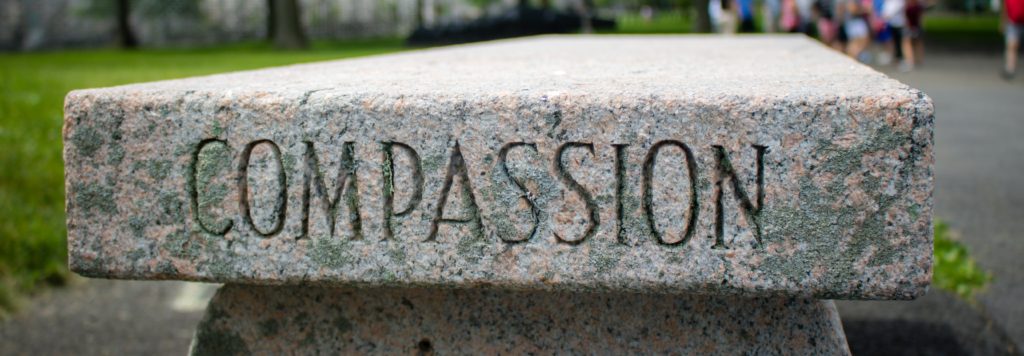Everyone, it seems, is struggling at the moment. So many of my friends have health issues and family worries. Others are simply finding the restrictions of lock-down unbearable. For myself, these last months have been extra challenging. I injured my back and endured three weeks of sciatic pain, then my darling daughter-in-law had a cancer scare, then another part of my back became problematic. My MS, not wanting to miss out, joined in too, with the result that I found it very difficult to keep balance and cheerful. Relentless pain wears you down physically and mentally.

Suffering also heightens one’s sense of isolation. This is magnified by the Covid restrictions and lack of normal interactions. So what can we do? We can practise resilience and we can listen. Paradoxically, the cure for our own sense of aloneness in suffering is in acknowledging the pain of others. I love the way that Bram Stoker expresses this:
Though sympathy alone can’t alter facts, it can make them more bearable.’
Bram Stoker
Pity, sympathy, empathy and compassion
All these responses are ones we would do well to cultivate if we hope to alleviate suffering in the world. Yet, they are all subtly different, moving from a passive to an active response. Psychology Today gave an excellent definition of each.
‘Pity: I acknowledge your suffering.
Sympathy: I care about your suffering.
Empathy: I feel your suffering.
Compassion: I want to relieve your suffering.’
Psychology Today
When we express our pain, we are often given the first two in response. This is seldom a great comfort. Pity and sympathy, though not without value, tend to put the giver of that emotion an elevated position to the sufferer. Which explains why, no doubt, ‘I don’t want your pity/sympathy,’ is a well-known response. Though I would rather someone showed they cared than not, expressions of pity always leave me feeling a little uncomfortable, not least because they do not actually offer any help.
Empathy has the advantage of equalising the relationship. ‘I feel your suffering,’ because I have suffered too. We do not need to have experienced the same experience (though it certainly helps if we have) to share that fellow feeling and make the listener feel less alone and less targeted for misfortune by the universe.

Compassion, however, is what we can all strive to provide. It literally means to join in suffering and further, to seek to heal. Taking action is key if our words are not to sound hollow. An act of kindness never goes amiss, but such acts are a little harder at the moment. So what can we do? We can listen.
Compassionate listening
The most beautiful and eloquent explanation of what compassionate listening means comes from the Buddhist monk, Thich Nhat Hanh. I’m just going to put a brief clip here, but you might like to watch the whole interview, which is on YouTube.
Hanh explains that when we listen with the intention of relieving suffering, we can allow others to unburden their hearts and heal. The method is simple in theory, but very difficult in practice.
Just listen – for up to one hour.
Keep advice or comments for another time. Perhaps you can arrange a date to do this afterwards.
Acknowledge your own failings. Try not to be distracted by theirs!
Adopt the correct mindset before you begin. This is not an activity I would advise when you, yourself, feel emotionally unsettled. A moment of prayer or meditation beforehand would certainly help. Hanh suggests we start this way: ‘I have not understood enough of your difficulties and suffering.’ Let me hear them and try to understand.
Baby steps
Few of us will have the grounded sense of self Hanh has, nor the years of self-discipline and meditative practice. Nor, I expect, have we been nominated for the Nobel Peace prize by none other than Martin Luther King. Mere mortals though we are, we can begin to practise compassionate listening both in conversations and I believe equally well in writing.
In doing this, we can support and love each other through these challenging times and beyond. I struggle, you struggle, we all struggle. Yet, we need not struggle alone.



